Top 10 Greatest Archaeologists of All Time
These archaeologists, they're not just ordinary people. They're explorers, adventurers, and real-life treasure hunters. They've spent their lives digging into the earth, unearthing secrets from the past that have been hidden for centuries, sometimes even millennia. They've braved harsh climates, navigated through unknown territories, and dedicated countless hours to painstakingly sift through layers of history.Each of them has contributed significantly to our understanding of human history. They've discovered ancient cities, deciphered cryptic scripts, and brought long-lost civilizations back to life through their tireless efforts. Their work has not only expanded our knowledge of the past but also shaped how we view our present and future.
The Top Ten
1 Howard Carter
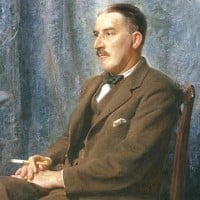 Howard Carter was a British archaeologist and Egyptologist, best known for discovering the tomb of Tutankhamun. His work in Egypt spanned the early 20th century and revolutionized our understanding of Ancient Egyptian civilization. Carter's discovery of King Tut's tomb in 1922 remains one of the most significant archaeological finds in history.
Howard Carter was a British archaeologist and Egyptologist, best known for discovering the tomb of Tutankhamun. His work in Egypt spanned the early 20th century and revolutionized our understanding of Ancient Egyptian civilization. Carter's discovery of King Tut's tomb in 1922 remains one of the most significant archaeological finds in history.
 Howard Carter was a British archaeologist and Egyptologist, best known for discovering the tomb of Tutankhamun. His work in Egypt spanned the early 20th century and revolutionized our understanding of Ancient Egyptian civilization. Carter's discovery of King Tut's tomb in 1922 remains one of the most significant archaeological finds in history.
Howard Carter was a British archaeologist and Egyptologist, best known for discovering the tomb of Tutankhamun. His work in Egypt spanned the early 20th century and revolutionized our understanding of Ancient Egyptian civilization. Carter's discovery of King Tut's tomb in 1922 remains one of the most significant archaeological finds in history.
2 Heinrich Schliemann
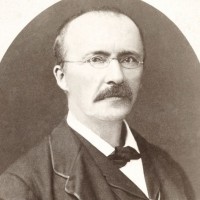 Heinrich Schliemann was a German businessman and pioneer in the field of archaeology. He is credited with the discovery of the ancient city of Troy, which he excavated in the late 19th century. Schliemann's work at Troy, Mycenae, and other sites helped to establish the historical timeline of the ancient world.
Heinrich Schliemann was a German businessman and pioneer in the field of archaeology. He is credited with the discovery of the ancient city of Troy, which he excavated in the late 19th century. Schliemann's work at Troy, Mycenae, and other sites helped to establish the historical timeline of the ancient world.
 Heinrich Schliemann was a German businessman and pioneer in the field of archaeology. He is credited with the discovery of the ancient city of Troy, which he excavated in the late 19th century. Schliemann's work at Troy, Mycenae, and other sites helped to establish the historical timeline of the ancient world.
Heinrich Schliemann was a German businessman and pioneer in the field of archaeology. He is credited with the discovery of the ancient city of Troy, which he excavated in the late 19th century. Schliemann's work at Troy, Mycenae, and other sites helped to establish the historical timeline of the ancient world. This dude discovered a city that people thought was a legend. He is the reason why so many historical events, once thought to be legends, are discussed to this very day in terms of their existence.
3 Kathleen Kenyon
Kathleen Kenyon was a leading British archaeologist of Neolithic culture in the Fertile Crescent. She is best known for her excavations at Jericho in the West Bank. Kenyon's work in the mid-20th century played a crucial role in our understanding of early human settlements.
4 Arthur Evans
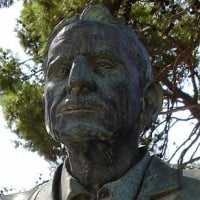 Arthur Evans was an English archaeologist most famous for unearthing the palace of Knossos on the Greek island of Crete. Evans' work at Knossos led to the discovery of the Minoan civilization, the earliest known civilization in Europe. His contributions to the study of Bronze Age culture are invaluable.
Arthur Evans was an English archaeologist most famous for unearthing the palace of Knossos on the Greek island of Crete. Evans' work at Knossos led to the discovery of the Minoan civilization, the earliest known civilization in Europe. His contributions to the study of Bronze Age culture are invaluable.
 Arthur Evans was an English archaeologist most famous for unearthing the palace of Knossos on the Greek island of Crete. Evans' work at Knossos led to the discovery of the Minoan civilization, the earliest known civilization in Europe. His contributions to the study of Bronze Age culture are invaluable.
Arthur Evans was an English archaeologist most famous for unearthing the palace of Knossos on the Greek island of Crete. Evans' work at Knossos led to the discovery of the Minoan civilization, the earliest known civilization in Europe. His contributions to the study of Bronze Age culture are invaluable.
5 John Lloyd Stephens
John Lloyd Stephens was an American explorer, writer, and diplomat who is considered the father of American archaeology. His travels in Central America resulted in major discoveries of Maya civilization. Stephens' publications on his travels and discoveries brought the ancient Maya civilization to the attention of the Western world.
6 Yigael Yadin
Yigael Yadin was an Israeli archaeologist, politician, and the second Chief of Staff of the Israel Defense Forces. He is known for his work on the Dead Sea Scrolls and various other archaeological endeavors. Yadin's archaeological career was instrumental in understanding Israel's ancient history.
7 Dorothy Garrod
Dorothy Garrod was a British archaeologist who specialized in the Palaeolithic period. She held the position of Disney Professor of Archaeology at the University of Cambridge from 1939 to 1952, the first woman to hold an Oxbridge chair. Garrod's work significantly advanced our knowledge of prehistoric cultures.
8 Zahi Hawass
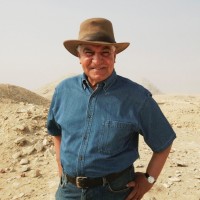 Zahi Hawass is an Egyptian archaeologist, an Egyptologist, and former Minister of State for Antiquities Affairs in Egypt. He has made major contributions to the understanding of Egypt's ancient past and has led numerous key excavations. Hawass is often featured in documentaries about the ancient world, making him a familiar face in archaeology.
Zahi Hawass is an Egyptian archaeologist, an Egyptologist, and former Minister of State for Antiquities Affairs in Egypt. He has made major contributions to the understanding of Egypt's ancient past and has led numerous key excavations. Hawass is often featured in documentaries about the ancient world, making him a familiar face in archaeology.
 Zahi Hawass is an Egyptian archaeologist, an Egyptologist, and former Minister of State for Antiquities Affairs in Egypt. He has made major contributions to the understanding of Egypt's ancient past and has led numerous key excavations. Hawass is often featured in documentaries about the ancient world, making him a familiar face in archaeology.
Zahi Hawass is an Egyptian archaeologist, an Egyptologist, and former Minister of State for Antiquities Affairs in Egypt. He has made major contributions to the understanding of Egypt's ancient past and has led numerous key excavations. Hawass is often featured in documentaries about the ancient world, making him a familiar face in archaeology.
9 Sylvanus Morley
Sylvanus Morley was an American archaeologist and Mayanist scholar who made significant contributions to the study of the pre-Columbian Maya civilization. He conducted extensive excavations at the Maya city of Chichen Itza in the early 20th century. Morley's work has greatly enriched our understanding of the Maya civilization.
10 Giovanni Battista Belzoni
Giovanni Battista Belzoni was an Italian explorer, actor, and engineer, who transported many antiquities from Egypt to Europe in the early 19th century. He is known for his removal to England of the seven-ton bust of Ramesses II, the clearing of sand from the entrance of the great temple at Abu Simbel, and the discovery of the tomb of Seti I. Belzoni's work left a lasting impact on Egyptology.
The Contenders
11 T. E. Lawrence
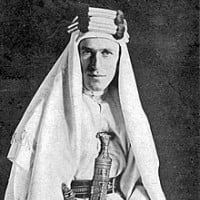 T. E. Lawrence was a British archaeologist, military officer, and writer. He is best known for his role in the Arab Revolt and the Sinai and Palestine Campaign against the Ottoman Empire during World War I. His work in the Middle East earned him the nickname "Lawrence of Arabia".
T. E. Lawrence was a British archaeologist, military officer, and writer. He is best known for his role in the Arab Revolt and the Sinai and Palestine Campaign against the Ottoman Empire during World War I. His work in the Middle East earned him the nickname "Lawrence of Arabia".
 T. E. Lawrence was a British archaeologist, military officer, and writer. He is best known for his role in the Arab Revolt and the Sinai and Palestine Campaign against the Ottoman Empire during World War I. His work in the Middle East earned him the nickname "Lawrence of Arabia".
T. E. Lawrence was a British archaeologist, military officer, and writer. He is best known for his role in the Arab Revolt and the Sinai and Palestine Campaign against the Ottoman Empire during World War I. His work in the Middle East earned him the nickname "Lawrence of Arabia".
12 Gertrude Bell
Gertrude Bell was a British writer, traveller, political officer, administrator, and archaeologist. She played a significant role in establishing and helping administer the modern state of Iraq. Bell's contributions to archaeology include her archaeological excavations in the Ottoman Empire before World War I.
13 Louis Leakey
Louis Leakey was a British paleoanthropologist and archaeologist whose work was important in establishing human evolutionary development in Africa. He is best known for his excavation work at Olduvai Gorge in Tanzania. Leakey's discoveries include Homo habilis, an early human ancestor.
14 Jean-Francois Champollion
Jean-Francois Champollion was a French scholar, philologist, and orientalist. He is primarily remembered as the decipherer of Egyptian hieroglyphs and a founding figure in the field of Egyptology. His work on the Rosetta Stone was instrumental in understanding ancient Egyptian culture and history.
15 Flavio Biondo
Flavio Biondo was an Italian Renaissance humanist historian. He is recognized as one of the first archaeologists, using the term "archaeology" in its modern sense. Biondo's work provided a systematic approach to ancient Roman topography and contributed significantly to historiography.
16 Thomas Jefferson
 Thomas Jefferson, the third President of the United States, was also an archaeologist. He is credited with pioneering archaeology in America, particularly for his systematic excavation of a Native American burial mound on his Virginia estate. His archaeological work laid the groundwork for future archaeological studies.
Thomas Jefferson, the third President of the United States, was also an archaeologist. He is credited with pioneering archaeology in America, particularly for his systematic excavation of a Native American burial mound on his Virginia estate. His archaeological work laid the groundwork for future archaeological studies.
 Thomas Jefferson, the third President of the United States, was also an archaeologist. He is credited with pioneering archaeology in America, particularly for his systematic excavation of a Native American burial mound on his Virginia estate. His archaeological work laid the groundwork for future archaeological studies.
Thomas Jefferson, the third President of the United States, was also an archaeologist. He is credited with pioneering archaeology in America, particularly for his systematic excavation of a Native American burial mound on his Virginia estate. His archaeological work laid the groundwork for future archaeological studies.
17 John Lubbock
John Lubbock, also known as Lord Avebury, was an English banker, Liberal politician, philanthropist, scientist, and polymath. He coined the terms "Paleolithic" and "Neolithic" to denote the Old and New Stone Ages, respectively. His work significantly contributed to the field of archaeology.
18 Flinders Petrie
Flinders Petrie was an English Egyptologist and a pioneer of systematic methodology in archaeology. He excavated many of the most important archaeological sites in Egypt and is often credited with inventing modern archaeological methods. Petrie's work in Egyptology has greatly contributed to our understanding of ancient Egypt.
19 Zelia Nuttall
Zelia Nuttall was an American archaeologist and anthropologist known for her work on pre-Aztec Mexican cultures. She dedicated her life to the study of ancient Mexico and helped redefine cultural perspectives. Nuttall's work significantly contributed to the field of Mexican archaeology.
20 Richard Freund
Richard Freund is an American Jewish rabbi, historian, and archaeologist. He has directed archaeological projects in Israel, Spain, Poland, and Lithuania. Freund's work has significantly contributed to our understanding of ancient Jewish history.
21 Caroline Sturdy Colls
Caroline Sturdy Colls is a British forensic archaeologist known for her work in Holocaust archaeology. She has led several high-profile investigations at Nazi extermination and concentration camps. Her work has significantly contributed to our understanding of the Holocaust.
22 Konrad Spindler
Konrad Spindler was a German archaeologist who specialized in the study of the European Iron Age. He is best known for his work on the Ötzi the Iceman, a well-preserved natural mummy of a man from about 3300 BC. Spindler's work has significantly contributed to our understanding of the European Iron Age.
23 Eduard Storch
Eduard Storch was a Czech archaeologist known for his work on the Paleolithic era. He conducted extensive research on the mammoth hunters of Moravia. Storch's work has significantly contributed to our understanding of the Paleolithic era.
24 Andrzej Kola
25 Yoram Haimi
8Load More
PSearch List